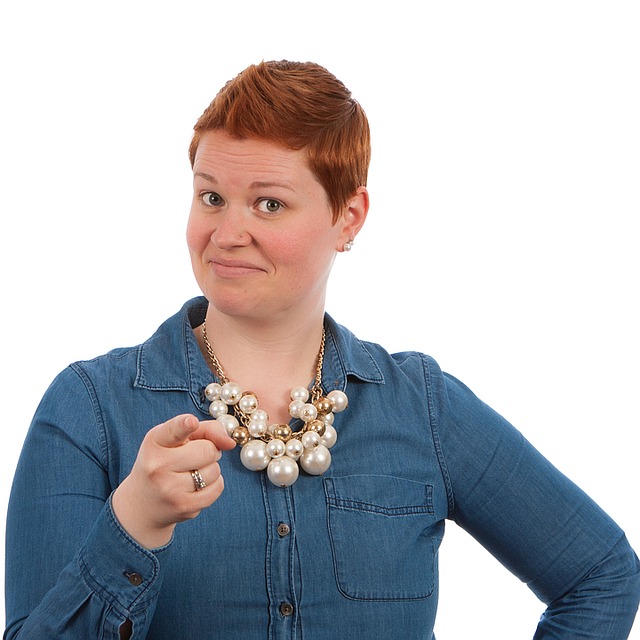I have a confession to make.
I begin by admitting that last week I told a friend of mine she should get a new accountant. I told another friend she should read a certain book during her vacation. And I told another he should quit a board he’s sat on for years.
Oh, and I just told you that you should read this blog post today.
I stated all of these beliefs with the best of intentions, of course. I truly believed they would be helpful.
The problem? I didn’t state my beliefs as opinions. I insinuated that they were facts. Facts that were absolutely, without a doubt, the right way to go.
I should-shamed these people. I should-shamed you (sorry about that).
So this post is a bit different in that we’re going a little personal on this (in a good way), but before we do…
…first, let me say that I’m pretty sure I’ve never met someone who hasn’t should-shamed – on others and themselves. I certainly haven’t met anyone who hasn’t been should-shamed.
We all know what it looks like when someone shoulds on us, right? Even when they mean well?

Shoulding on people puts them in a terrible position. Should suggests a judgmental belief about a right and wrong way to do something. And, since we all want to do things the right way (and avoid offending people), those who are shoulded feel compelled to do the should – whether or not it’s right for them.
Let’s face it…should-shaming is everywhere. It starts almost out of the womb.
Often with the best of intentions, our families, friends, teachers, the media – you name it – should on us throughout our lives. And these shoulds – some small and some HUGE – are stated as absolute facts, driving us to make certain choices.
Some examples of the ways we are shoulded-on?
- How we should look
- What we should weigh
- How we should speak
- How we should behave/act
- What careers we should pursue
- How we should spend/save/invest our money
- Where we should live
- What we should eat/drink
- Which Netflix specials/YouTube videos we should watch
- Which pets we should get
- How we should birth, name, raise, feed and talk to our babies (we REALLY like to should about babies!)
The list goes on and on…again, often stated with the best of intentions by people we trust. They are also stated as facts, not opinions, which is what they really are.
And, because we don’t necessarily hear another side, and because we trust the folks behind them (and don’t want to disappoint them), we accept those shoulds as facts. And then we follow them, even if they don’t work for us. Even if they make us miserable.
Which is the problem.
Now, let’s get to the solution.
Remember that part about getting a little personal? It’s time.
It’s time for your very own should inventory.
Please answer the following, and give them a bit of thought as you do:
- In my childhood years, the shoulds I learned about how to look/act/be were:
- In my teens and 20s, the shoulds I learned about how to look/act/be, as well as things like education, careers, marriage and family were:
- Since then, the shoulds I’ve learned about how to look/act/be, as well as things like parenting, vacations, investing my money and hobbies/sports were:
Now…of the shoulds above…
- Which are you following these days, perhaps while not even thinking about them? Which drive your choices?
- Which of the ones that you are following don’t actually work well for you? Which ones don’t work for you at all?
- Now, knowing that shoulds are not facts, which means you’re still a good person if you don’t follow them, what new/different/other opinions might replace the shoulds that don’t work for you…so that you can live a better/happier/more authentic life?
I know this isn’t necessarily easy stuff. It can be scary. After all, you may have firmly linked yourself to a should your whole life. Or you may worry about offending someone if you change a should.
But that’s okay. Fear is a natural result of considering a change, even when that change will be better for you. Fear doesn’t mean you’re powerless. You can work through it…using the true friends who will respect you no matter which should you choose to follow.
How? First, embrace that a should is not a fact. Knowing this, identify the shoulds that don’t work for you (or don’t work anymore) and work on replacing them as best you can. Be kind to yourself in the process. Pay attention to when you should on yourself, too.
And when you find yourself about to should on someone else, replace the word with phrases like “You may want to consider…” or “An option might be…”
I’ll be right there with you as I work on going easier on my friends…and, of course, you. No should-shaming here.

Sorry again about that.
PS – This is the last post before we close registration for our upcoming Sparkplug Project “Mental Bootcamp”! If today’s post was helpful, then our weekend in the mountains to figure out how to make your professional/personal life even better may be just your thing! It’s for anyone, from anywhere, who’s ready to get unstuck and/or more satisfied. Details are here: Sparkplug Project Mental Bootcamp


